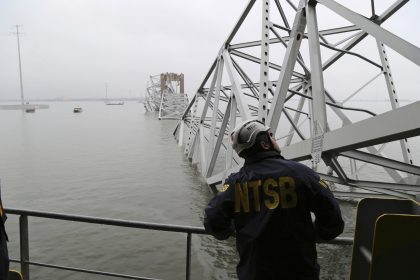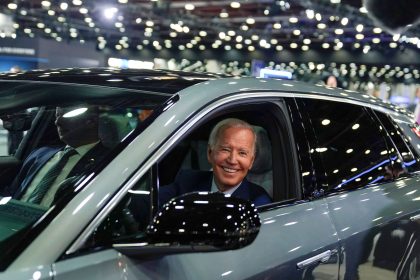Commerce, Not Safety Long at Forefront of Aviation Industry Oversight

The issues raised Wednesday during a meeting of the Senate Commerce Subcommittee on Aviation and Space went to the very heart of a conflict that has plagued aviation and the entities created to regulate it since the days of Charles Lindbergh and Amelia Earhart.
The FAA of today traces its roots to the Civil Aeronautics Authority, an entity created in 1926 to both promote and regulate commercial aviation — on its face a conflict of interest.
President Calvin Coolidge created the authority by signing the Air Commerce Act on May 20, 1926. According to a New York Times account at the time, the Act directs the Secretary of Commerce “to encourage the establishment of airports, civil airways and other navigation facilities,” to consult the Secretary of Agriculture about a “necessary meteorological service” and “to study the possibilities for the development of air commerce and the aeronautical industry and trade in the United States.”
The Act focused on the creation of “air navigation facilities” and directed those in charge of airports to “provide temporary shelter for commercial aircraft and to sell fuel, oil, equipment and supplies.”
The Times article paraphrases then Commerce Secretary Herbert Hoover predicting that by 1929 the United States would have “the most complete air service in the world.”
Nowhere in the piece is safety ever mentioned.
A latter New York Times article, from September 1931, noted that many modifications had been made to the Act, and went on to say that most of the “restrictions,” presumably safety regulations, incorporated into it, focused on “traffic rules,” “weather regulations” and “pilot technique” and were based on “conservative authority which has resulted from years of experience.”
“Other restrictions impressed into the code are based on the natural laws of property, and the rights of citizens to be protected against hazard,” the article said.
Still, the tone of the article is decidedly on the side of protecting commerce, the reporter, Leo Kieran stating in his lede that despite the fact flying safety had increased “fourfold” since the Act went into effect “the aviation industry is harassed periodically by individual but glaring errors in the judgment of pilots, some of which result in sensational crashes over cities.”
There’s no doubt that both the nation’s airlines and regulators were under pressure when that piece was written. Months earlier, on March 31, 1931, a crash in Bazaar, Kansas killed everyone on board, including the popular University of Notre Dame football coach Knute Rockne.
Despite an outcry, little changed on the safety front.
Four years later, on May 6, 1935, a DC-2 crash near Kansas City, Missouri killed U.S. Senator Bronson Cutting of New Mexico.
Cutting’s death did have a profound national impact. In its aftermath, Congress created the Copeland Committee, which later issued a scathing report on air safety, saying regulators failed to provide adequate money to programs directly related to aircraft safety and flight navigation.
In response, President Franklin Roosevelt signed the Civil Aeronautics Act in 1938. The legislation established the independent Civil Aeronautics Authority, with a three-member Air Safety Board that would conduct accident investigations and recommend ways of preventing accidents.
The legislation also expanded the government’s role in civil aviation, and created a new position, the director of the United States Bureau of Air Commerce.
Under the first director, Fred Dow Fagg Jr., the bureau was reorganized and regulations were drawn up that formed the basis for modern aviation policies. Fagg helped write the Air Commerce Act of 1938, on which many private and commercial aviation rules are based.
Among the safety measures he proposed were those requiring planes to be equipped for ”blind” flying in bad weather or at night, and requiring pilots to file flight plans.
The modern FAA was created in August 1958, with the passage of the Federal Aviation Act. Although the agency was effectively created immediately, it actually came together in stages.
With no dedicated office space for the Federal Aviation Agency, employees of the growing agency were housed in several widely dispersed buildings around Washington, DC, including some “temporary” buildings of World War II vintage.
It was during this period that the Organization Designation Authorization program came into being.
President Lyndon Johnson, concerned about the lack of a coordinated transportation system, soon decided a single department was needed to develop and carry out comprehensive transportation policies and programs across all transportation modes.
In 1966, Congress authorized the creation of a cabinet department that would combine major federal transportation responsibilities. This new Department of Transportation began full operations on April 1, 1967.
























